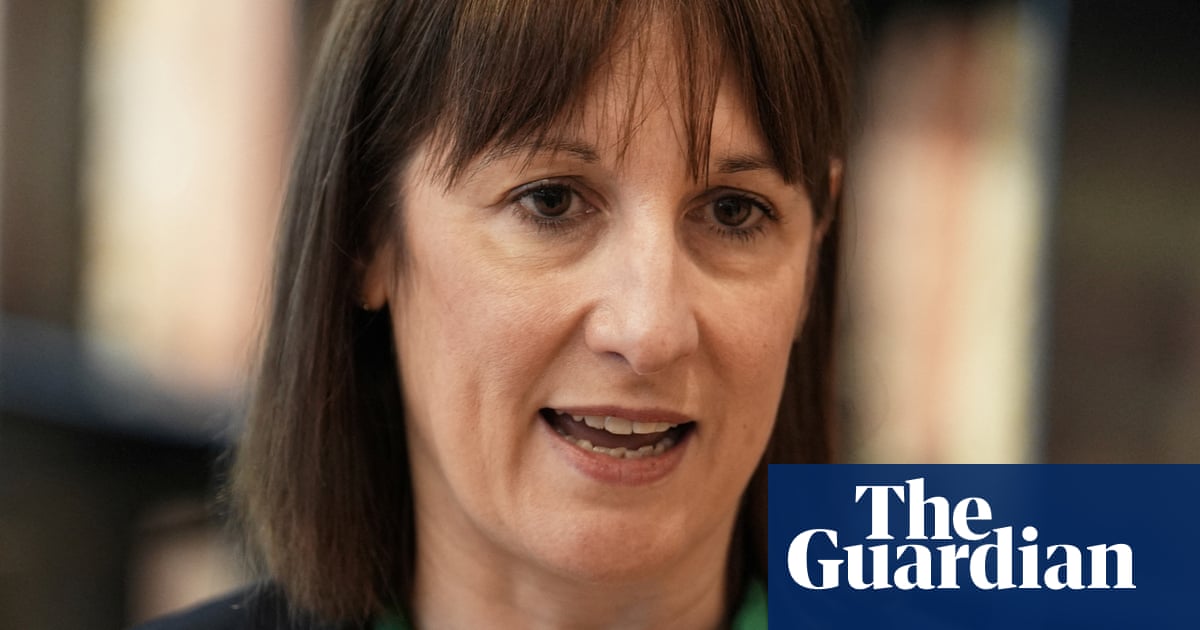Rachel Reeves has ruled out a U-turn on disability benefit cuts but said she was “taking into account” representations from Labour MPs, and could tweak the qualification rules for the benefits.
The chancellor said “the welfare system is not working today” and the changes the government was making were needed because 1,000 people a day were newly claiming disability benefits.
Reeves said thespending plans she set out on Wednesdaywere all fully costed, but refused to rule out further tax rises in the budget this autumn in an “uncertain world”.
Pressed on whether she would change her mind on disability benefit cuts, she said: “No, we’re not going to be changing that. It is important that we reform the way the welfare state works, so that there is a welfare state there for people.”
“We are the only developed country where the number of people in the labour market is lower than it was before Covid, the number of economically inactive people of working age is rising.”
But the chancellor indicated that ministers could review the changes they were planning to make to the rules for qualifying for personal independence payments (Pips).
Reeves told the BBC Radio 4 Today programme: “We are reviewing the criteria to get Pips and of course we’ll take into account those representations. We’ve already announced that we are reviewing the criteria for accessing personal independence payments.
“Even with these changes we will substantially be increasing the amount of money we are paying in sickness and disability benefits during the course of this parliament.”
In March, Labour announced plans tosave £5bn a yearby overhauling the welfare system, including by cutting personal independence payments for disabled people. The proposals triggered alarm among Labour MPs, and ministers have been considering tweaks before a vote expected later this month.
Under the government’s planned changes, claimants would not qualify for Pips unless they scored a minimum of four points on a single daily living activity. Assessments score the difficulty from 0 to 12 that claimants face in a range of living activities such as preparing and eating food, communicating, washing and getting dressed.
Reeves also indicated that the government was open to liftingthe two-child benefit cap, saying that it was among “a range of ways in which we can lift children out of poverty”.
Sign up toFirst Edition
Our morning email breaks down the key stories of the day, telling you what’s happening and why it matters
after newsletter promotion
Speaking the morning after the spending review, Reeves denied the characterisation that she was a “Klarna chancellor” who was setting out plans to “buy now, pay later”.
“I don’t accept that at all. The idea that yesterday I racked up a bill that I’m going to need to pay for in the future, that’s just not right. Last year, I had to increase taxes. I have now allocated that money in the spending review on health, security and economic growth, but everything yesterday was fully costed and fully funded from the budget last year.”
Reeves said none of the plans she outlined on Wednesday would require tax rises. However, she repeatedly refused to rule out tax rises in the autumn budget and insisted that “the world is very uncertain at the moment”.
“I think it would be very risky for a chancellor to try and write future budgets in a world as uncertain as ours,” she told LBC radio. But she added: “I won’t have to repeat a budget like the one that I did last year.”
Pressed on whether the government’s spending plans assumed that councils would raise council tax by 5%, Reeves said this was a cap set by the Conservatives and councils could choose to raise tax by less.
